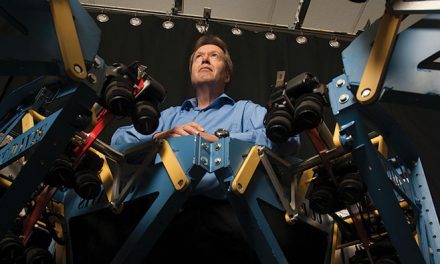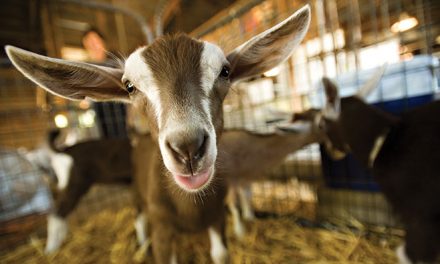Picnic Day Through the Years
Photography from the archive and by Karin Higgins and Gregory Urquiaga
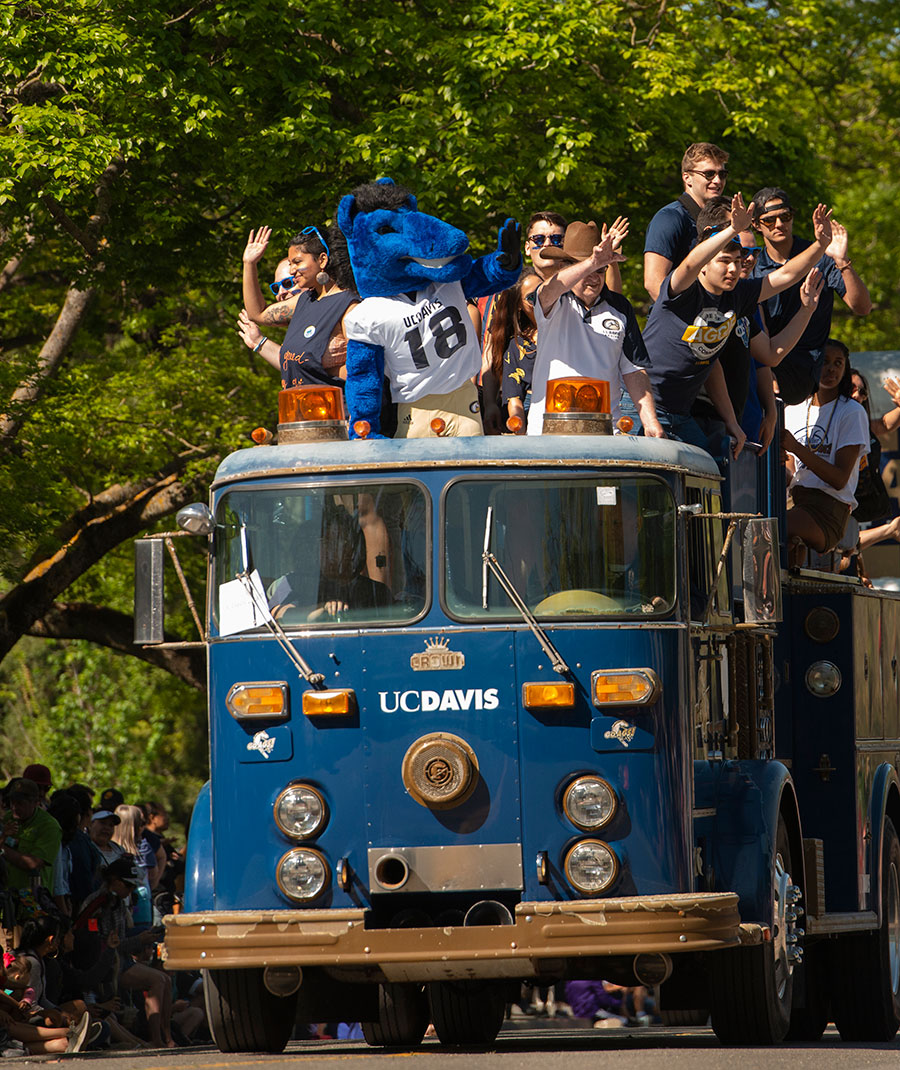
A virtual Picnic Day is in the works for this weekend.
If all had gone according to plan, the 106th annual Picnic Day would have been held on campus this weekend, on April 18. This year’s in-person activities have been called off due to efforts to slow the spread of COVID-19.
Instead, planners have put together some past live streams from previous Picnic Days, as well as some virtual activities including a game of Bingo and craft projects for children. Picnic Day T-shirt sales will benefit the UC Davis Medical Center.
The first Picnic Day, back in 1909 when UC Davis was still the University Farm, featured the dedication of new dormitory North Hall, and the event evolved quickly into an open house for the entire campus. Students took over planning in 1912, and the event has flourished and grown over the years.
It was canceled in 1924, 1938 and three years during World War II. This marks the first virtual Picnic Day.
UC Davis Magazine celebrated 100 Picnic Days back in 2014. You can read the story online.
Enjoy a look back at the quintessential UC Davis event through the years.
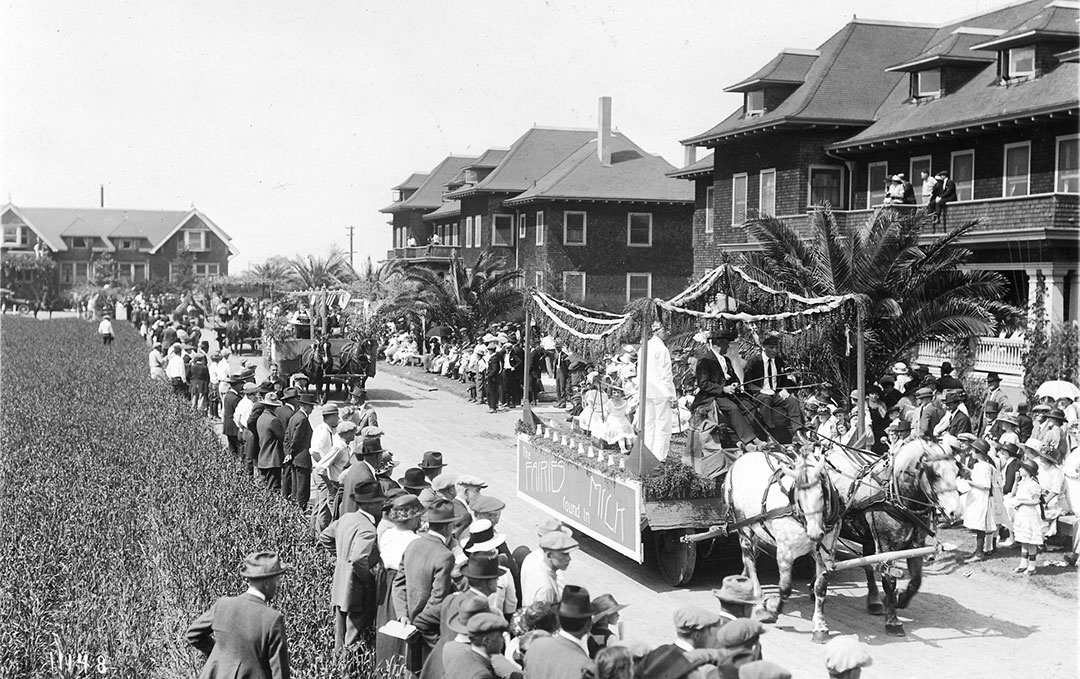
The Parade
The Picnic Day parade dates to at least 1912, when the main entries were prize livestock. And in 1959, the parade route was extended to downtown to celebrate Davis as its own UC campus. Since 1962, the board has selected marshals to be honored in the parade and guests of Picnic Day.
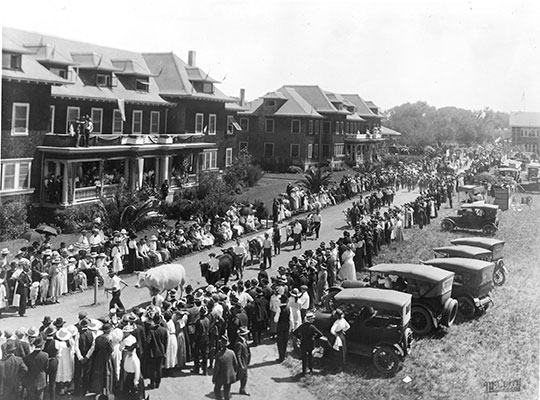
Then: The parade is seen here in 1916. The first float appeared in the parade a year later. Big crowds came even in those early days. Attendance was reported to be 15,000 in 1916, far outnumbering the 314 students hosting the event.
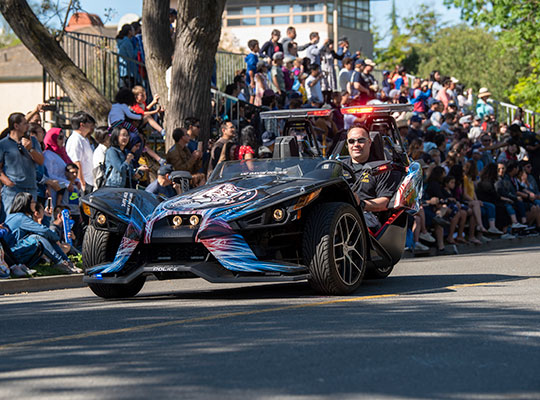
Now: The parade acts as the opening ceremony of the day’s events. Participants include campus groups as well as community organizations. Here, a UC Davis Police officer shows off the department’s three-wheel Polaris Slingshot motorcycle in 2019.
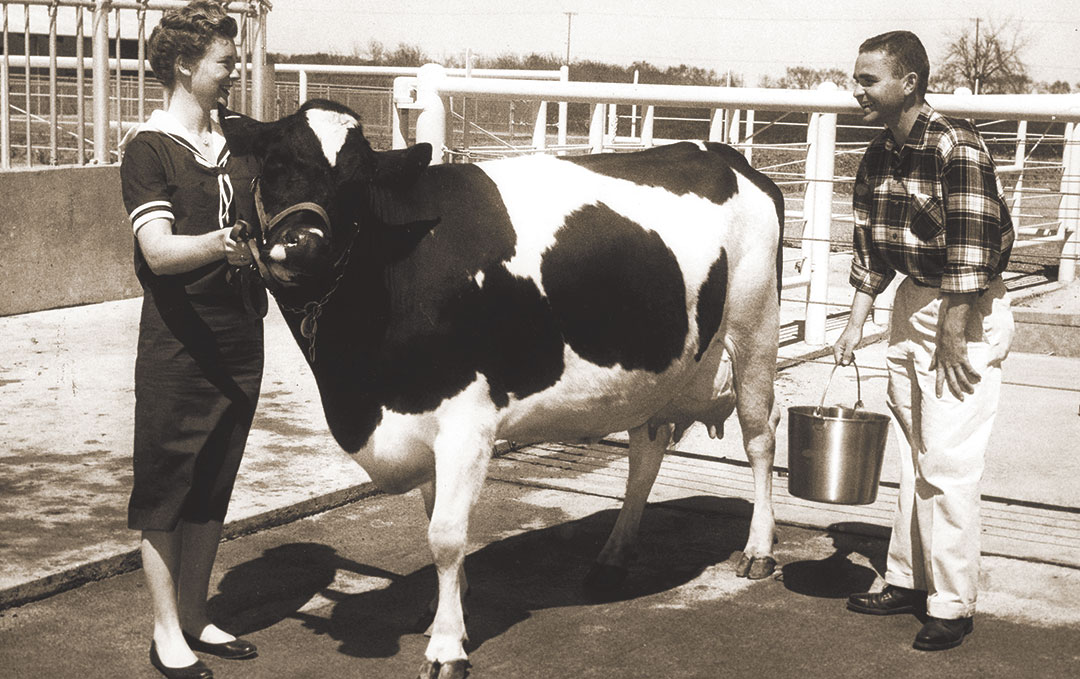
Animal Attractions
Livestock and education about animals have been mainstays of Picnic Day since the beginning. Even today, children can learn to milk a cow, see chickens hatching, meet horses and more. Here, the cow milking exhibit gets underway in 1959.
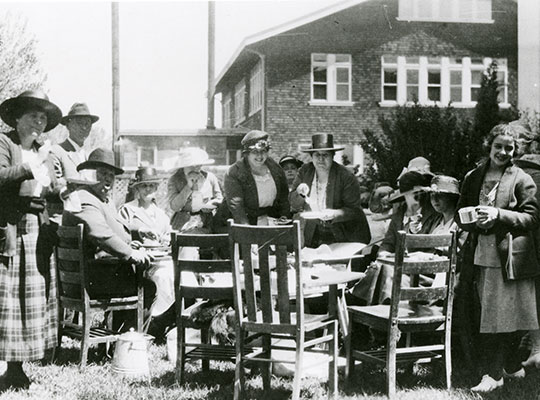
Then: Though picnics were never the main draw at Picnic Day, the university did pour free coffee and cream that first day for visitors who brought their own cups and spoons. This was before the campus had much in the way of dining facilities.
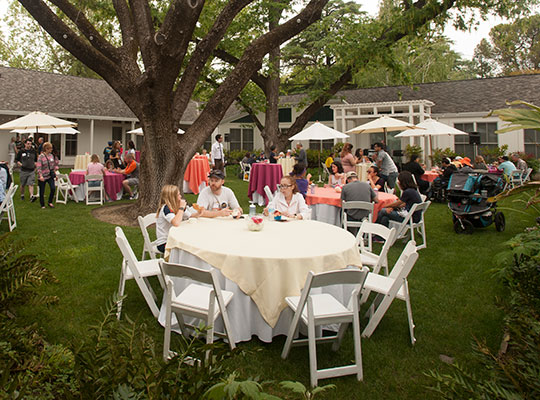
Now: Picnic Day these days features a vast array of dining options, including plenty of opportunities for outdoor picnics. Here, university employees enjoy an ice cream social at the Chancellor’s Residence in 2017.
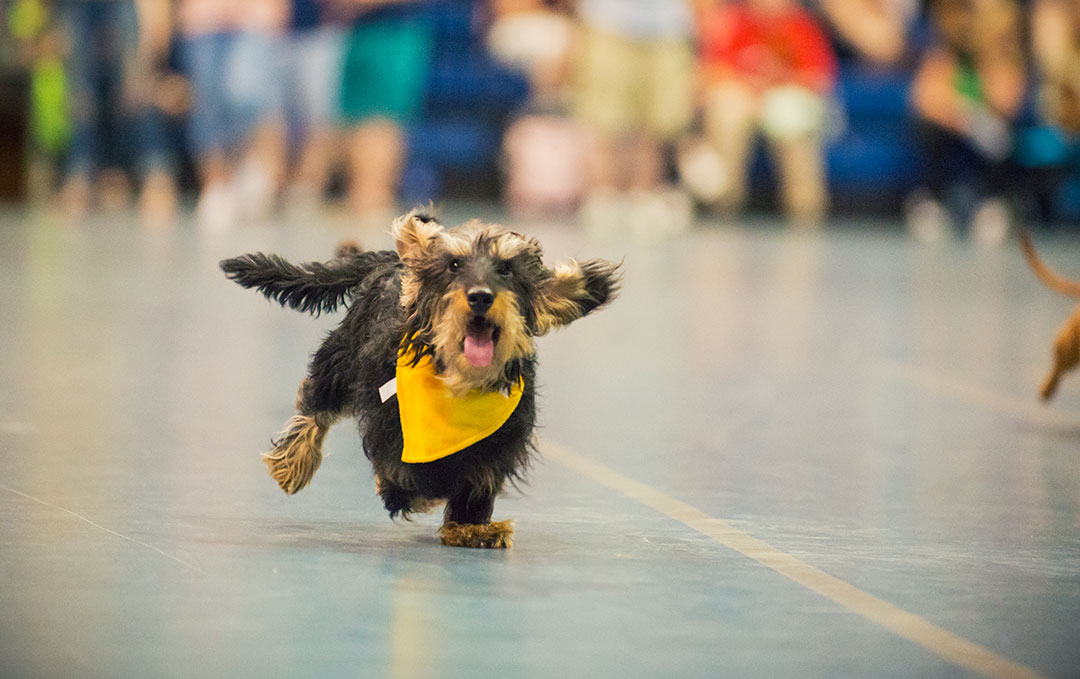
Doxie Derby
The first Doxie Derby, pitting dachshund against dachshund in a very cute race, was held in 1972. The event continues to be among the most popular of the day, as sometimes the dogs get distracted and wander off the track before the end of the race.
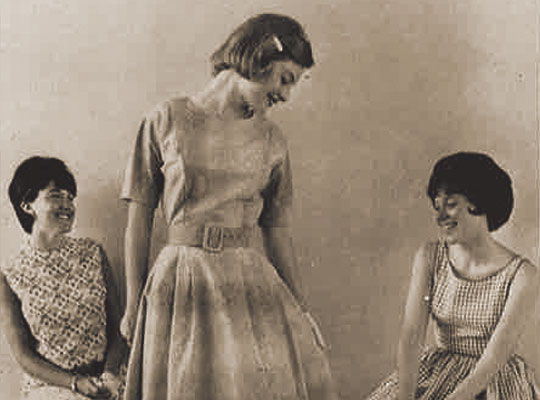
Then: The fashion show dates back decades. In 1933, history shows, models showed off the newest sportswear and dresses. This also marked a year that a woman was on the planning board and headed up women’s activities. The photo above is from 1964.
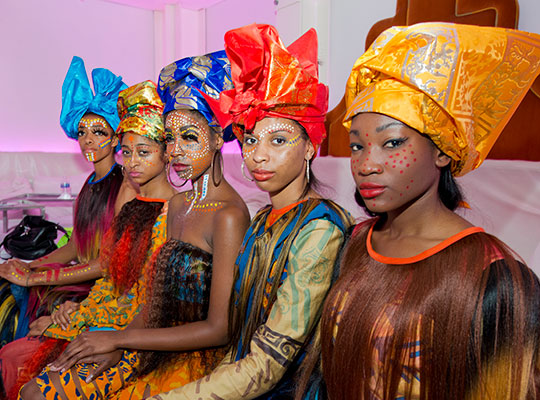
Now: The UC Davis Fashion and Design Society presents the fashion show at Picnic Day. The annual runway show features fashion created and executed by Department of Design undergraduate students in the “Signature Collections” course.
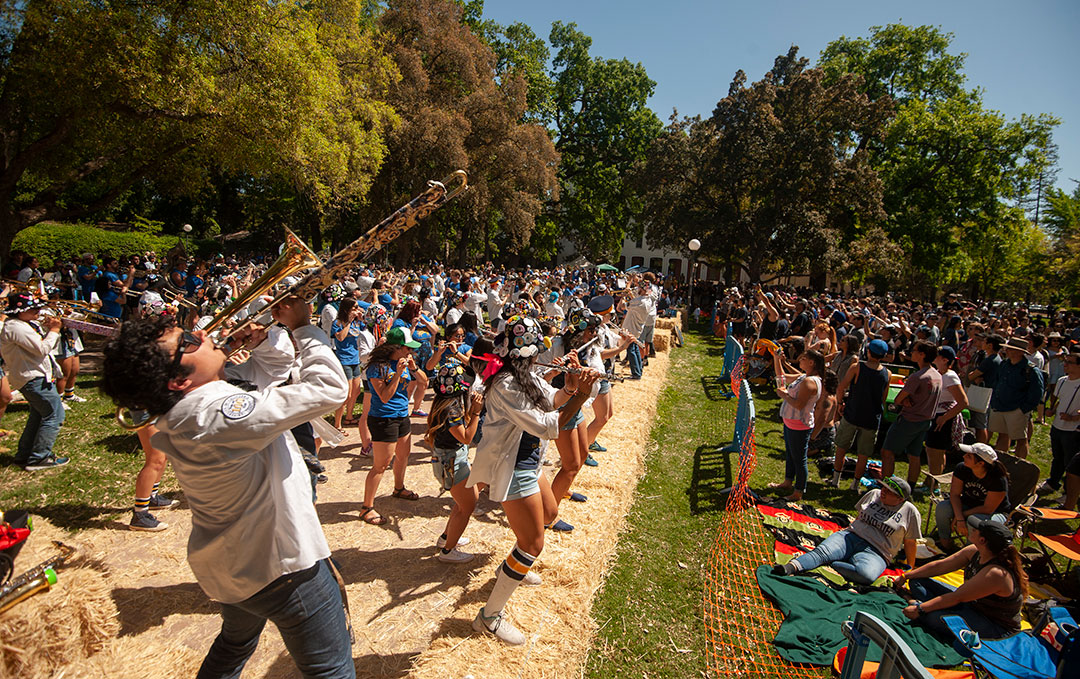
Battle of the Bands
Legend has it that the Battle of the Bands began in the early 1970s, when the Cal Aggie Marching Band-uh discovered the Cal Band playing on the Quad after the parade and started blasting tunes back at the Bears in an effort to defend its turf. Over the years, the last-band-standing contest has pitted the Aggie Band-uh against rival bands from Stanford University, UC San Diego, UC Irvine, Humboldt State University and Oregon State University. The Band-uh claims to never have lost, perhaps due to a rule dating to at least the 1980s requiring the finale to be the Aggie fight song. The battles often go into the wee hours of the night.


